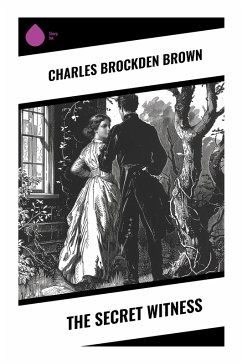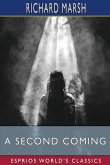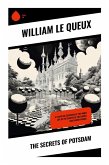In "The Secret Witness," Charles Brockden Brown intricately weaves a tale that reflects the tumultuous socio-political landscape of early 19th-century America. The novel showcases Brown's hallmark style of psychological horror, illustrating the interplay between individual psyche and environmental influences. Through vivid characterizations and a complex narrative structure, the text scrutinizes the themes of identity and secrecy, encapsulating the burgeoning anxieties surrounding trust and betrayal in a newly forming nation. Brown's adept use of Gothic elements not only serves to evoke suspense but also invites deep reflection on the moral ambiguities present in human relationships. Charles Brockden Brown, often heralded as America's first professional novelist, brings his foundational experiences in the literary landscape to this work. Born into a period marked by Enlightenment ideals yet overshadowed by chaotic revolution, Brown's writing is profoundly influenced by his philosophical inquiries into the human condition. His keen interest in psychology and ethics is apparent in this narrative, where he deftly explores the darker facets of inter-human dynamics and societal frameworks, bearing witness to both personal and collective struggles. Readers seeking a profound meditation on identity and the veils of secrecy will find "The Secret Witness" to be a compelling and thought-provoking read. Brown's narrative not only captures the imagination but also provokes critical engagement with the themes of self and other. This book is essential for anyone interested in the evolution of American literature and the exploration of psychological depths within a historical context.
Bitte wählen Sie Ihr Anliegen aus.
Rechnungen
Retourenschein anfordern
Bestellstatus
Storno








